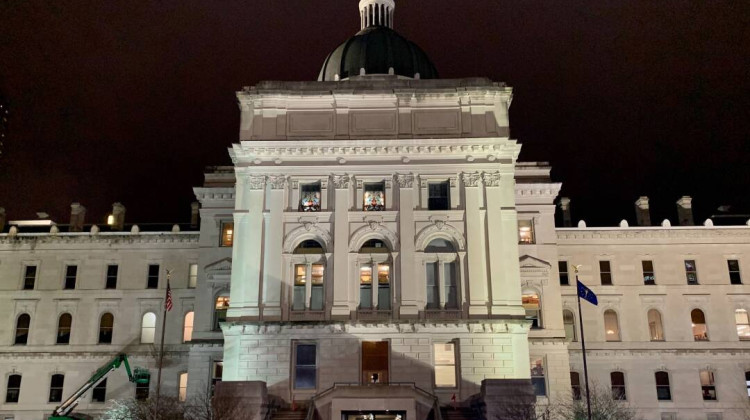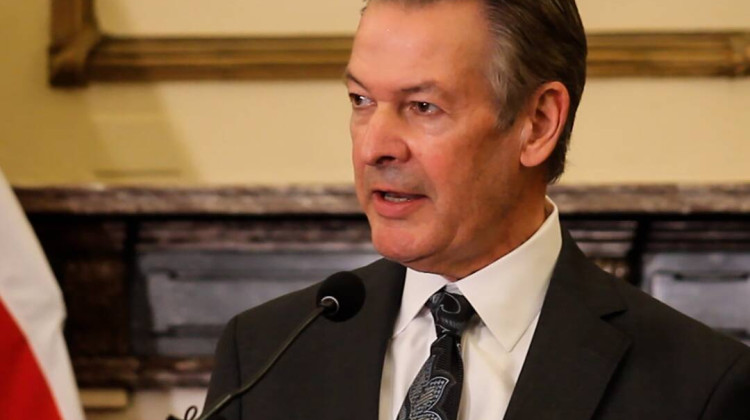
Indiana hasn't increased eligibility for the Temporary Assistance for Needy Families program in decades.
Brandon Smith/IPB NewsIndiana is set to give more low-income Hoosiers access to short-term government financial help in the next few years.
Legislation headed to the governor, SB 265, expands eligibility for the Temporary Assistance for Needy Families, or TANF, program for the first time in three decades.
Currently, people in Indiana earning 16 percent of the federal poverty level are eligible for TANF. For a family of four, that’s take-home pay of less than $400 a month.
The bill gradually increases that over the next four years to 50 percent of the federal poverty level – for that family of four, still less than $1,000 a month.
Alexander Mingus, Indiana Catholic Conference associate director, said the people helped by TANF are a fraction of the people in need.
“Direct cash assistance to the most vulnerably poor Hoosiers is an investment in human dignity,” Mingus said.
In addition to increased eligibility, the measure also expands the amount of assistance those on the program receive. Its author, Sen. Jon Ford (R-Terre Haute), said that for a family of three, the monthly cash assistance would go from $288 to $513.
READ MORE: Indiana Senate passes bill with ‘modest’ increases to TANF eligibility limit, payments
Join the conversation and sign up for the Indiana Two-Way. Text "Indiana" to 73224. Your comments and questions in response to our weekly text help us find the answers you need on statewide issues throughout the legislative session. And follow along with our bill tracker.
After a change by the Indiana House, the bill now also makes pregnant women eligible for the program, throughout their pregnancy. Erin Macey, Indiana Community Action Poverty Institute director, has worked on maternal and child health initiatives.
“The increased benefits you're providing under SB 265 will allow a mother in need to hold onto her car and to afford basics like diapers,” Macey said.
The program's other restrictions would remain in place. Before approval, a person applying for TANF must have 20 days of searching for a job. And there's a 24-month lifetime limit for adults on the program, 60 months for children.
The first increase in eligibility wouldn’t take effect until July 2025.
Brandon is our Statehouse bureau chief. Contact him at bsmith@ipbs.org or follow him on Twitter at @brandonjsmith5.
9(MDAyMzk1MzA4MDE2MjY3OTY1MjM5ZDJjYQ000))
 DONATE
DONATE








 Support WFYI. We can't do it without you.
Support WFYI. We can't do it without you.